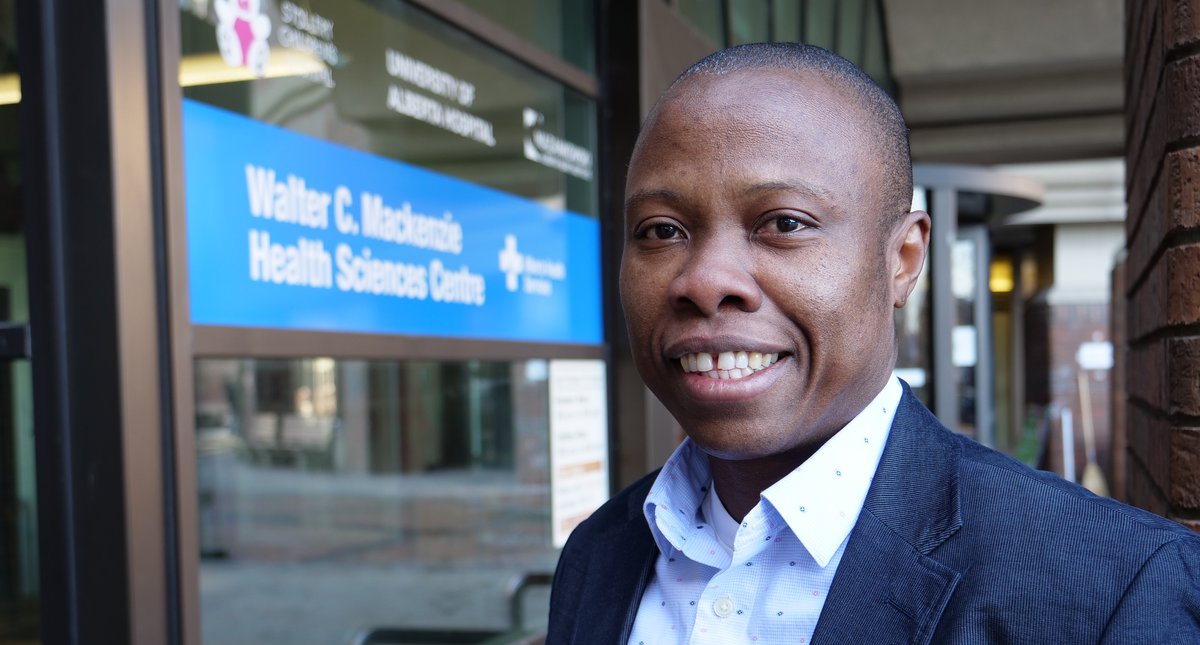The Department of Psychiatry’s Gender Program at the University of Alberta, along with the World Professional Association for Transgender Health (WPATH), held the first-ever Global Education Initiative (GEI) conference in Canada to help train clinicians in the competent care of transgender individuals. This ground-breaking conference took place February 1-3, 2019, at the U of A Hospital.
The Department of Psychiatry’s recently established Gender Program serves the needs of the gender-diverse and trans-identified population in greater Edmonton. As the inaugural program lead, I’ve observed there are very few clinicians on the ground in Alberta trained in this field. The program has been working hard to break down barriers and expedite access to quality care.
The Gender Program, which includes core components in the clinical, educational and research areas, was launched in 2018 in partnership with the U of A and Alberta Health Services (AHS). I am currently one of only two psychiatrists in greater Edmonton, and one of a few in all of Alberta, who specialize in serving the needs of transgender individuals.

The conference in February was a major part of our ongoing efforts, and I’m really excited about where we are headed. Guest speakers at the conference included some of the leading transgender health specialists in the world. Several of the Montreal-based surgeons who perform gender confirmation surgeries also attended, along with providers from Alberta and Canada.
WPATH, a non-profit, interdisciplinary professional and educational organization devoted to transgender health, has developed a specialized core curriculum for training clinicians in competent, compassionate, culturally sensitive transgender care. Known as the Global Education Initiative, it is built around a series of courses that were integrated within the conference agenda. These courses include the following:
- Foundations in Transgender Health: A two-day training course that addresses what all clinicians should know about gender development; related mental health issues; legal, policy and ethical issues; and hormonal and surgical interventions.
- Advanced Medical Treatment: A full-day training session focused on advanced hormonal treatment and complications, co-occurring conditions, ongoing primary care and aging.
- Advanced Mental Health: A full-day session that dives into advanced psychotherapy topics and navigating issues like countertransference, children of transgendered people, re-identification and trauma.
- Workshops: These are specialized four- to eight-hour interactive and/or case-based sessions that focus on specific areas of interest. Workshops are aimed at those who have completed the Foundations in Transgender Health course.
In addition to the above, the WPATH Certification Program is an optional benefit that is offered to association members. It signifies that a provider is a WPATH member in good standing who has completed an additional rigorous educational curriculum focused on the most current standards of care.
The Certification Program’s extensive 50-hour core-competencies-based training program includes course work, mentorship and a minimum membership requirement. Those who complete the program must also pass a certification exam.
Our objective in bringing the WPATH GEI program to Alberta is simple and straightforward. We aim to provide more high-quality, transgender-focused training to clinicians so that there will be more of us on the ground in Alberta, reducing wait times and increasing access to compassionate, competent health care professionals. We won’t overcome the challenges overnight, of course. It will take time. But we have begun the journey toward making Alberta a more welcoming, caring and supportive home for transgender people.
The U of A Gender Program’s clinical arm receives many new persons referred every day. The program has about 600 active persons at present, and it has engaged with well over 1,000 individuals since the Gender Program was launched in 2018. The wait time will increase without increasing capacity province wide.
Since greater Edmonton has a population of 1.3 million, and Alberta is home to 4.3 million residents, we must build more system capacity to address the health and well-being needs of the under-served transgender population. As it stands, feelings of isolation and minority stress are common among some transgender individuals in Alberta. People are at the most risk in the period before getting the help they need. This distress is preventable.
We’re finally moving forward as a province and as health care professionals in addressing these unmet needs, and I feel very gratified to be a key part of this effort.
Related Link:
Banner photo: Dr. Michael Marshall presents at the World Professional Association for Transgender Health conference at the University of Alberta (Photo credit: Zach Polis)
